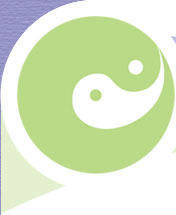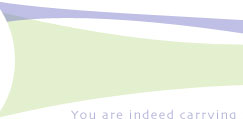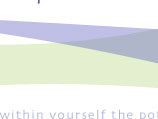acupuncture
 |
What is Acupuncture?
The principles of acupuncture are based on the theory of Yin and Yang and the concept of Qi (pronounced "chee"). Qi corresponds broadly to energy or life force. Yin and Yang describe the dynamic opposites that exist in our body and all of nature. A balance of Yin and Yang must be maintained so that Qi is not disrupted. Human beings are bioenergetic systems. When the balance of Qi is disrupted, disharmony, pain and illness result. Acupuncture is the insertion of very fine needles at specific points on the body. This process acts as a catalyst to create positive change. By stimulating our innate ability to heal ourselves, acupuncture can relieve symptoms of disease and promote health on many levels. It is based on traditions and philosophies thousands of years old and it continues to evolve to meet modern health challenges.
How does acupuncture work?
Traditional Chinese Explanation: Acupuncture is based on the premise that Qi (energy or life force) flows through many channels in the body. When the movement of Qi is impeded, symptoms of disease occur. Acupuncture works by harmonizing the movement of Qi in the body. Acupuncture points are located on the skin where the channels come closer to the surface. The points are like gates through which Qi is accessed to correct energetic imbalances, and to restore both harmony and the natural ability of the body to heal itself.
Biomedical Explanation: The complete mechanism of acupuncture is multifaceted and complex, and there are many aspects of it that cannot be measured. As a result, acupuncture is not fully understood by Western science. Some theories do exist that attempt to explain the healing capabilities of acupuncture, including Chemical, Structural and Electromagnetic:
- Chemical Theory: The acupuncture needle elicits a biochemical cascade of events; from the site of the needle, signals are sent to the brain to release natural pain killing substances into the blood stream. These substances include endorphins, such as the Opioid Dynorphin, natural mood enhancers such as Serotonin, and various hormones and neurotransmitters.
- Structural Theory: Acupuncture can relieve pain by needling the trigger and motor points. The needle causes a localized jump or contraction (fasciculation) in the muscle. The fasciculation and full contraction force the muscle to a post-excitation relaxation response. The needle allows the muscle to relax allowing for better blood flow and healing.
- Electromagnetic Theory: This is the most comprehensive explanation for the long-term effects of acupuncture, and also the most difficult to research and evaluate. Acupuncture points may be primary sites of conduction for electromagnetic signals throughout the body. By affecting the acupuncture point we can change the flow of electrical energy in the body. Although complicated, Electromagnetic Theory is most closely aligned with the Chinese theory of Qi.





